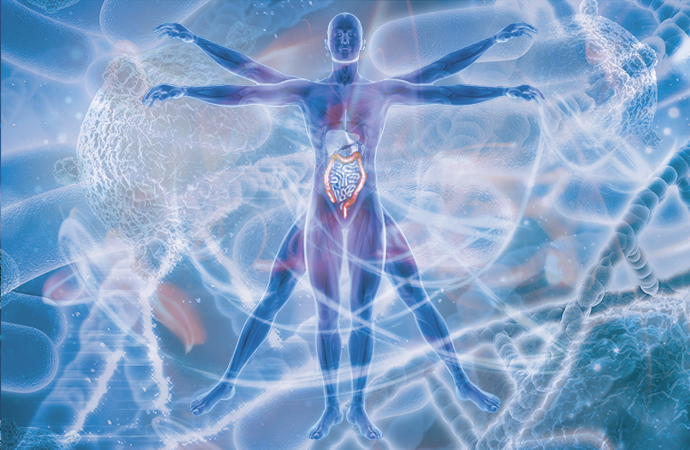We are what we eat. Everything that we choose to eat affects our bodies and the bacteria community, our microbiota, that lives in our guts.
The Industrial revolution has modified our relationship with the environment, our eating behaviors, and our food choices. The way we prepare our food has also evolved a lot from our ancestors.
Our lifestyle influences our gut bacteria and their genes (microbiome) and our health. In recent works, researchers have shown that chronic diseases, such as obesity and autoimmune diseases, are related to our eating habits in the industrialized world.
In an article published in Nature this year, Marsha C. Wibowo from Harvard Medical School and collaborators reconstructed the genetic information of the bacteria species present in our ancestors’ gut. They analyzed the genetic material (genome) in the fossil feces identifying 498 genetic profiles belonging to different species.
The samples came from 1,000 to 2,000 years old fossil feces from Mexico and the United States. The researchers analyzed the samples to detect any type of pollutants that can interfere with the classification of the bacteria. The results of these samples were compared with feces of present humans across eight different countries in industrialized and non-industrial areas.
They discovered that 39 % that the genetic information from the fossil feces was from bacteria species never described before. That means our industrialized life changed the composition of our microbiota, making our current gut different from our ancestor’s gut.
They also analyzed the number of different species of bacteria and the abundance of some particular species.
Surprisingly, they found that our ancestors’ microbiome was similar to the microbiome found in feces from modern non-industrialized countries. Most of the diversity of gut bacteria was lost in people from industrialized countries.
Marsha C. Wibowo and collaborators also found an enrichment of antibiotic-resistant bacteria in the feces from industrialized countries compared with non-industrialized and fossil feces. These results indicate that the consumption of antibiotics can generate gut bacteria resistant to antibiotic treatments —something we need to have in mind when we decide to take some medicines.
Understanding our ancestors’ diet and their way of living can help us to uncover the origin of some of the new diseases we need to deal with nowadays.
References
- Wibowo, M.C., Yang, Z., Borry, M. et al. (2021). Reconstruction of ancient microbial genomes from the human gut. Nature. https://doi.org/10.1038/s41586-021-03532-0
- Sonnenburg, E. D. & Sonnenburg, J. L. (2019). The ancestral and industrialized gut microbiota and implications for human health. Nat. Rev. Microbiol. 17, 383–390
- Blaser, M. J. (2017). The theory of disappearing microbiota and the epidemics of chronic diseases. Nat. Rev. Immunol. 17, 461–463.
Illustration by Dana Dumea.






Good article, very useful for me. I have a related article with the same discussion. please visit this website, let’s discuss with me: http://news.unair.ac.id/2020/05/19/masifkan-sosialisasi-gaya-hidup-baru/